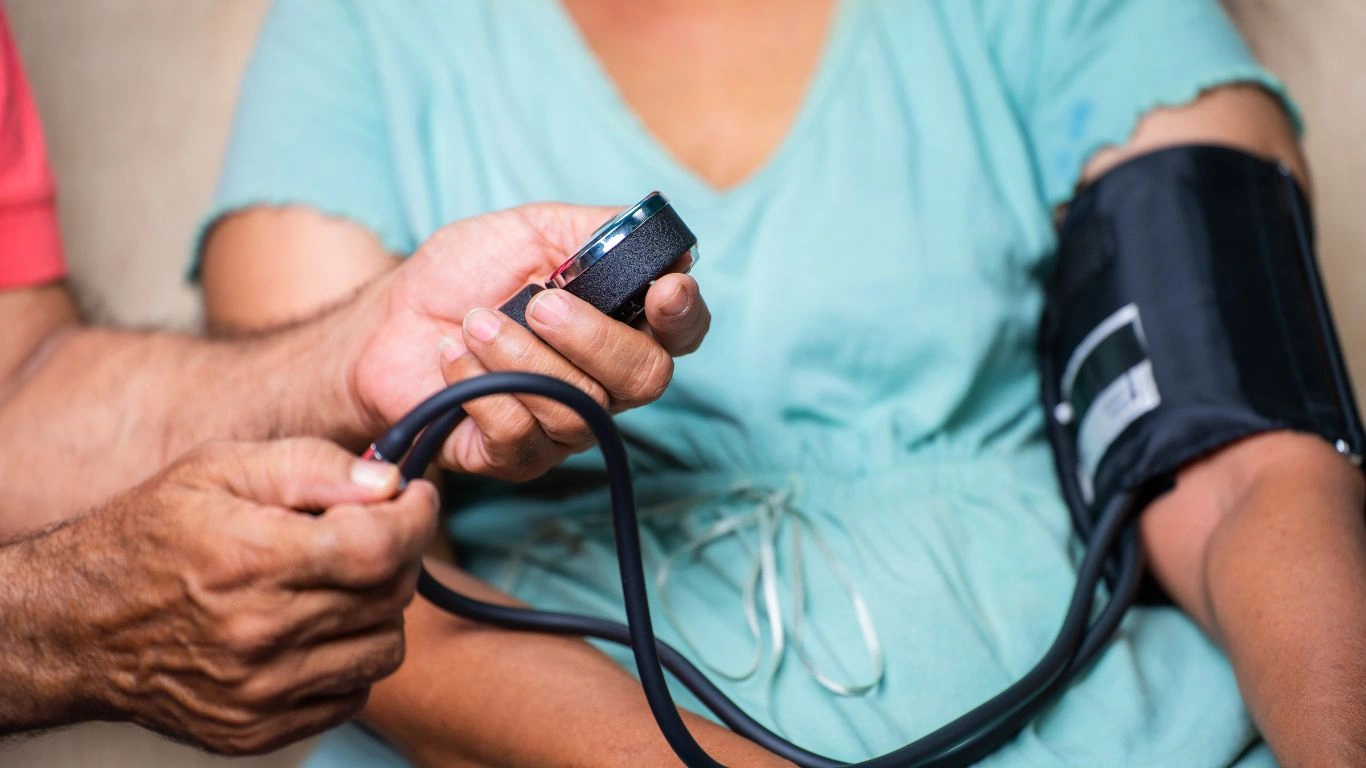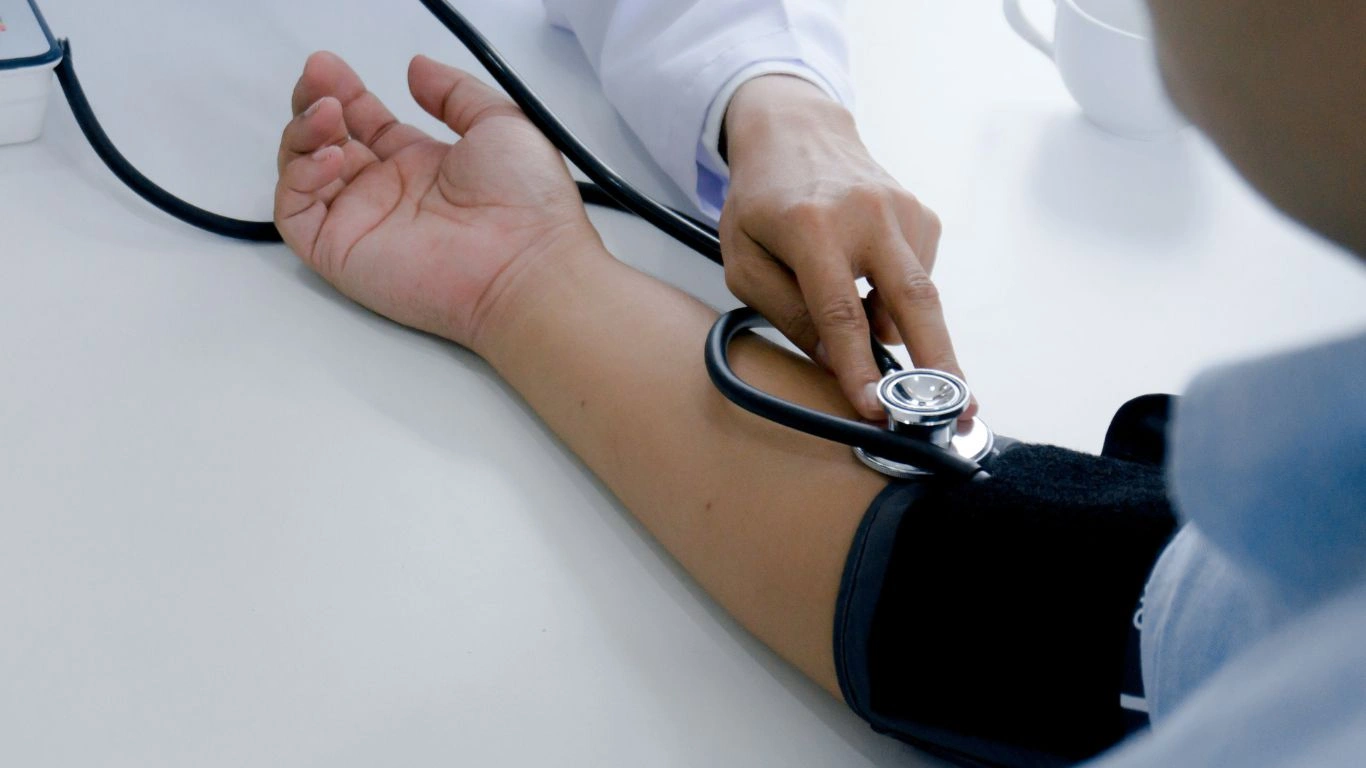How Alkaline Diets Effectively Regulate Blood Pressure Naturally
As an Internal Medicine Physician specializing in hypertension management, I’ve had the privilege of working closely with many patients to help them manage their blood pressure effectively. One of the more intriguing areas I’ve explored with some of my patients involves dietary changes, particularly alkaline diets, and their potential impact on blood pressure regulation. Many people are unaware of how subtle shifts in diet can profoundly affect overall health, especially for those struggling with hypertension. In this post, we’ll dive into how alkaline diets might influence blood pressure and what you can do to incorporate them into your routine if you’re looking for a natural way to support your cardiovascular health.
The Basics of Blood Pressure and Hypertension
First things first, it’s important to understand what blood pressure is and why it’s such a critical factor in health. Blood pressure refers to the force of blood against the walls of your arteries as your heart pumps it around your body. When this pressure becomes too high, it can lead to health problems, including heart disease, stroke, and kidney damage. Hypertension, commonly known as high blood pressure, is when this pressure remains elevated over time. If left untreated, it can silently damage organs and tissues, often without noticeable symptoms.
Many people know that medication can help manage hypertension, but what about diet? That’s where alkaline diets come into the picture. These diets are often discussed in the health community for their potential to not only balance your body’s pH levels but also help lower blood pressure. But how exactly do they work? Let’s take a closer look.
How Alkaline Diets Affect Blood Pressure Regulation
To begin, let’s break down what an alkaline diet actually is. Essentially, an alkaline diet encourages the consumption of foods that promote a more alkaline (or less acidic) environment in the body. The idea is that certain foods can either increase or decrease the acidity of your blood, and the more alkaline foods you eat, the better your body can regulate its internal pH. Foods that are commonly considered alkaline include fruits, vegetables, nuts, and legumes, while more acidic foods often include processed meats, dairy, and refined sugars.
Now, you might be wondering: how does this relate to blood pressure regulation? Here’s where things get interesting. Research suggests that diets rich in fruits and vegetables—many of which are alkaline-forming—can help lower blood pressure. A study I came across during my practice even showed that those who consumed more alkaline foods tended to have lower blood pressure levels, likely due to the high levels of potassium, magnesium, and antioxidants these foods provide.

The Role of Potassium in Alkaline Diets
One of the key nutrients in alkaline foods that can play a major role in blood pressure regulation is potassium. Potassium is a mineral that helps balance out the negative effects of sodium in your body. High sodium levels are a primary contributor to hypertension, so by consuming more potassium-rich foods like leafy greens, bananas, and avocados, you can help your body maintain a healthier balance and lower your blood pressure.
In my experience, I’ve often recommended potassium-rich foods to my patients who struggle with high blood pressure, and many have seen improvement. When potassium intake is high enough, it can reduce the tension in the blood vessel walls, which in turn helps lower overall blood pressure.
What’s the Science Behind It?
The connection between alkaline diets and blood pressure regulation is backed by several scientific studies. While it’s still a relatively new area of research, there’s evidence supporting the idea that increasing the intake of alkaline foods can positively affect blood pressure. A randomized controlled trial published in the American Journal of Clinical Nutrition found that individuals who followed an alkaline diet for several weeks had significantly reduced systolic blood pressure, especially those with a higher initial risk of hypertension.
Another study, conducted by the University of Melbourne, observed that participants who consumed a diet high in fruits and vegetables (many of which are alkaline-forming) had better blood pressure control compared to those who followed a standard Western diet. While these studies suggest a positive relationship between alkaline diets and blood pressure management, more research is needed to fully understand the long-term effects and mechanisms involved.

What Types of Foods Should You Focus On?
If you’re looking to incorporate an alkaline diet into your lifestyle for the benefit of blood pressure regulation, there are several types of foods to focus on. These include:
- Fruits: Especially those rich in potassium, such as bananas, oranges, and melons.
- Vegetables: Leafy greens like spinach, kale, and Swiss chard are excellent choices.
- Nuts and Seeds: Almonds, sunflower seeds, and chia seeds are rich in magnesium and other important nutrients.
- Legumes: Beans, lentils, and peas provide a great source of protein without the acidity of meat.
- Herbs and Spices: Fresh herbs like basil, cilantro, and parsley can enhance flavor and add beneficial antioxidants.
All of these foods are not only alkalizing, but they also provide essential vitamins and minerals that contribute to overall heart health. Plus, they are naturally low in sodium, which is key in preventing and managing high blood pressure.
Can an Alkaline Diet Replace Medication?
While alkaline diets can certainly help manage blood pressure and improve heart health, it’s essential to remember that they shouldn’t replace prescribed medication unless advised by your doctor. As a physician, I always stress to my patients that lifestyle changes like diet are most effective when combined with proper medical care and monitoring. An alkaline diet can be a great complementary approach, but it should be part of a comprehensive treatment plan.

How to Incorporate an Alkaline Diet for Better Blood Pressure Control
If you’re considering adopting an alkaline diet to help regulate your blood pressure, you may be wondering how exactly to make this dietary shift. The good news is that transitioning to a more alkaline-based eating pattern doesn’t have to be overwhelming. In fact, it’s all about making small, sustainable changes that are easy to incorporate into your daily life. From personal experience, I’ve found that gradual changes often work better for patients, as they help create lasting habits rather than quick fixes that are hard to maintain.
One of the best ways to get started is by focusing on whole, natural foods—those that are rich in potassium, magnesium, and fiber. These nutrients not only support overall health but also help manage blood pressure naturally. And while you don’t have to go entirely alkaline to start seeing benefits, the more you can shift your plate to include alkalizing foods, the better the results will be. Let’s talk about how you can begin making these adjustments in your meals.
Start Your Day with Alkalizing Breakfasts
Breakfast is the perfect time to incorporate alkaline foods into your diet. Start by opting for foods that are naturally alkalizing, like oatmeal made with almond milk or a green smoothie packed with spinach, kale, and banana. I’ve recommended green smoothies to many of my patients over the years, and they’re not only easy to make but packed with nutrients that can give you a solid start to your day while helping to balance your pH levels.
Another excellent breakfast choice is avocado toast on whole-grain bread. Avocados are full of heart-healthy fats and potassium, which makes them a great choice for supporting healthy blood pressure. Throw in some tomatoes, fresh herbs like basil, and a sprinkle of chia seeds for added nutrition. Plus, these foods are all alkaline-forming, which means they’re gentle on your body’s pH balance.

Lunch and Dinner: Filling, Flavorful, and Alkalizing
When it comes to lunch and dinner, the key is variety. A well-rounded alkaline meal should include a mix of vegetables, lean proteins, and healthy fats. For example, a delicious quinoa salad with roasted vegetables—think zucchini, carrots, and sweet potatoes—can be a satisfying meal that helps keep your blood pressure in check. Toss in some chickpeas for protein, and you’ve got a meal that’s both alkaline and nutrient-dense.
Another easy go-to is a hearty vegetable stir-fry with tofu or tempeh. Both tofu and tempeh are plant-based proteins that have minimal acidity and provide excellent nutrition. I recommend incorporating lots of cruciferous vegetables such as broccoli, cauliflower, and Brussels sprouts into your stir-fry. These vegetables are not only alkalizing but also rich in antioxidants, which help combat oxidative stress in the body, a key factor in managing hypertension.
For those who still enjoy a more traditional dinner, try baked salmon with a side of roasted asparagus and a small serving of quinoa or brown rice. Salmon is high in omega-3 fatty acids, which are essential for heart health, while asparagus is one of the most alkaline vegetables. This meal not only balances your pH but also offers a dose of anti-inflammatory nutrients to support overall cardiovascular health.
Foods to Avoid When Following an Alkaline Diet
While incorporating more alkaline-forming foods into your diet is key for blood pressure regulation, it’s equally important to be mindful of what you’re leaving behind. Some foods tend to be acidic, and consuming them in excess can disrupt your body’s natural pH balance and exacerbate hypertension. For example, processed foods high in sodium, sugary snacks, and red meats are all acidic-forming foods that can negatively impact your blood pressure.
As someone who treats patients with hypertension regularly, I often find that cutting down on sodium is one of the most effective changes people can make. High sodium intake leads to water retention, which in turn increases blood volume and elevates blood pressure. Avoiding salty snacks, canned soups, and processed meats like bacon and sausage can significantly help in managing your blood pressure. Instead, opt for fresh, whole foods that are naturally low in sodium.

Another acidic food group to minimize is dairy. Many people are unaware that dairy products, especially full-fat versions like cheese and milk, can be acid-forming in the body. While dairy can be a good source of calcium, it may not be the best option for those trying to lower their blood pressure. There are plenty of plant-based alternatives—like almond milk, soy milk, and coconut yogurt—that are both alkaline and rich in essential nutrients.
Hydration: The Forgotten Factor in Alkaline Diets
Hydration plays a crucial role in supporting overall health and can’t be overlooked when following an alkaline diet. Water, especially alkaline water, helps flush out toxins and maintain proper fluid balance in the body. In my clinical practice, I often recommend my patients drink plenty of water, not just to stay hydrated but to help keep their blood pressure under control.
If you’re looking for an extra boost, consider adding a slice of lemon to your water. While lemons themselves are acidic, they have an alkalizing effect on the body once metabolized. This simple habit can help you stay hydrated and promote a more alkaline pH in your system, ultimately contributing to better blood pressure regulation.

Consistency is Key for Long-Term Blood Pressure Management
It’s important to remember that, just like any diet or lifestyle change, consistency is key. You’re not likely to see drastic changes overnight, but with time, your blood pressure will likely improve as you make more alkaline foods a regular part of your diet. As I’ve seen in my practice, patients who stick to a balanced, whole-foods-based diet and keep their sodium intake low tend to see gradual but sustainable results. Keep track of your progress and work with your healthcare provider to monitor how your blood pressure responds to dietary changes.
For many, following an alkaline diet isn’t about completely eliminating certain foods; it’s about making healthier choices and finding a balance that works for your body. With the right approach, you can significantly improve your blood pressure levels without solely relying on medications.
Overcoming Challenges: Making Alkaline Diets Sustainable
As with any lifestyle change, sticking to an alkaline diet can be challenging, especially in the beginning. Many people are used to the convenience of processed foods and quick meals that don’t always align with the alkaline principles. However, through my experience working with patients, I’ve seen that the key to success is persistence and planning. You don’t have to make drastic changes overnight. Instead, start small, and build a routine that fits your lifestyle. Gradually increasing your intake of alkaline-forming foods and reducing acidic ones is a strategy I’ve often recommended, and it works wonders over time.
One thing I remind patients is that it’s okay to have setbacks. We live in a fast-paced world, and sometimes convenience wins out. If you find yourself tempted by processed snacks or a fast food meal, don’t beat yourself up about it. Instead, think of it as an opportunity to refocus and return to your goal the next day. It’s about progress, not perfection. A little flexibility goes a long way in helping you maintain a balanced and sustainable approach to health.

Personal Experience with Alkaline Diets and Blood Pressure
From my own practice, I’ve noticed something interesting: when patients begin to adopt a diet that focuses on fruits, vegetables, and plant-based proteins, they often report feeling more energetic and less stressed. This, in turn, helps to improve their blood pressure. The mind-body connection plays a significant role in hypertension management, and by eating a diet that promotes both physical and mental health, many patients experience more than just lower blood pressure—they experience overall well-being.
In particular, patients who also incorporate physical activity into their routine alongside dietary changes tend to have the most success in maintaining healthy blood pressure levels. Exercise, even something as simple as daily walks, complements the alkalizing effects of the diet by helping to reduce stress and improve circulation. I always tell my patients that a holistic approach, combining both nutrition and lifestyle changes, provides the best outcomes for managing hypertension.
How to Monitor Your Blood Pressure While Making Dietary Changes
As you begin incorporating an alkaline diet into your lifestyle, it’s essential to track your progress. Monitoring your blood pressure regularly is the best way to see how well the changes are working. You don’t have to rely solely on in-office visits to get this information. Investing in a reliable home blood pressure monitor allows you to keep tabs on your levels and provides valuable insight into the effectiveness of the dietary changes you’re making.
When monitoring your blood pressure at home, be consistent. Take readings at the same time each day and try to do so in a relaxed setting. It’s easy to get stressed out by the numbers on the monitor, but remember that blood pressure can fluctuate throughout the day. If you notice a trend of lower readings over time, that’s a sign that your dietary adjustments are working. On the other hand, if your blood pressure remains elevated, it may be time to consult with your healthcare provider to reassess your approach.
Consult with Your Healthcare Provider
Before making any significant dietary changes, it’s always a good idea to consult with your healthcare provider, especially if you’re on medication for high blood pressure. While an alkaline diet can be incredibly beneficial, it’s important to ensure that your treatment plan remains well-rounded and suitable for your individual needs. In some cases, your doctor may adjust your medications or recommend additional lifestyle changes to complement your dietary shifts.
For example, if you’re on medication that helps your body regulate sodium levels, your doctor may suggest increasing your potassium intake from food sources. This adjustment can help maximize the blood pressure-lowering effects of both your medication and your diet. My patients who have adopted a more alkaline-focused diet often find that their doctor adjusts their blood pressure medications over time, leading to lower dosages or even discontinuation in some cases—under medical supervision, of course!

References and Additional Resources
- American Heart Association: Blood Pressure Resources
- National Institute on Aging: Diet and Blood Pressure
- WebMD: The Benefits of Alkaline Diets
- Mayo Clinic: Blood Pressure Management Tips
Disclaimer
The information provided in this article is intended for informational purposes only and should not be used as a substitute for professional medical advice. Always consult your healthcare provider before making changes to your diet or medication regimen. While alkaline diets have shown potential benefits for blood pressure regulation, individual results may vary, and they should be considered as part of a comprehensive treatment plan tailored to your specific health needs.

Dr. Gwenna Aazee is a board-certified Internal Medicine Physician with a special focus on hypertension management, chronic disease prevention, and patient education. With years of experience in both clinical practice and medical writing, she’s passionate about turning evidence-based medicine into accessible, actionable advice. Through her work at Healthusias.com, Dr. Aazee empowers readers to take charge of their health with confidence and clarity. Off the clock, she enjoys deep dives into nutrition research, long walks with her rescue pup, and simplifying medical jargon one article at a time.







